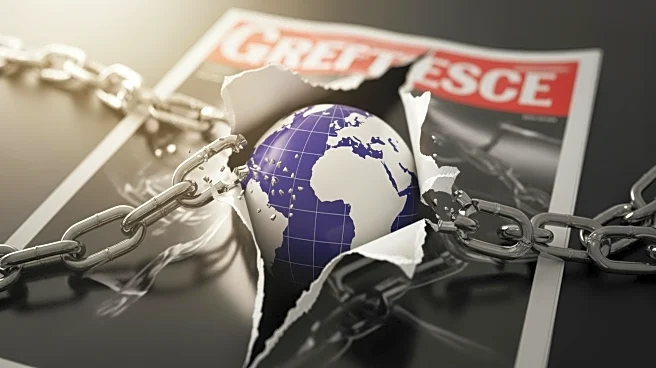What's Happening?
President Donald Trump has expressed dissatisfaction with his portrayal on the cover of Time magazine's November issue. The cover highlights his administration's role in securing a ceasefire deal in Gaza. President Trump reportedly described the cover as 'may
be the Worst of All Time.' The ceasefire deal in Gaza is a significant diplomatic achievement, aiming to reduce tensions and violence in the region. Time magazine's cover is intended to spotlight this accomplishment, but President Trump has taken issue with the representation.
Why It's Important?
The criticism from President Trump underscores the ongoing tension between media portrayals and political figures. Time magazine is a prominent publication, and its covers often influence public perception. The ceasefire deal in Gaza is a critical diplomatic effort, and the way it is presented in media can impact public understanding and support. President Trump's reaction may reflect broader concerns about media bias and the portrayal of political achievements. This incident highlights the complex relationship between media outlets and political leaders, which can affect public discourse and policy support.
What's Next?
It remains to be seen how Time magazine will respond to President Trump's criticism, if at all. The magazine may choose to address the concerns publicly or continue with its editorial decisions. Meanwhile, the ceasefire deal in Gaza will likely continue to be a focal point in international diplomacy, with ongoing efforts to maintain peace and stability in the region. Political analysts and media critics may further explore the implications of media portrayals on diplomatic achievements and political narratives.
Beyond the Headlines
This situation raises questions about the role of media in shaping political narratives and the potential impact on diplomatic relations. The portrayal of political figures and their achievements can influence public opinion and international perceptions. The incident may prompt discussions on media ethics, bias, and the responsibilities of publications in accurately representing political events.















